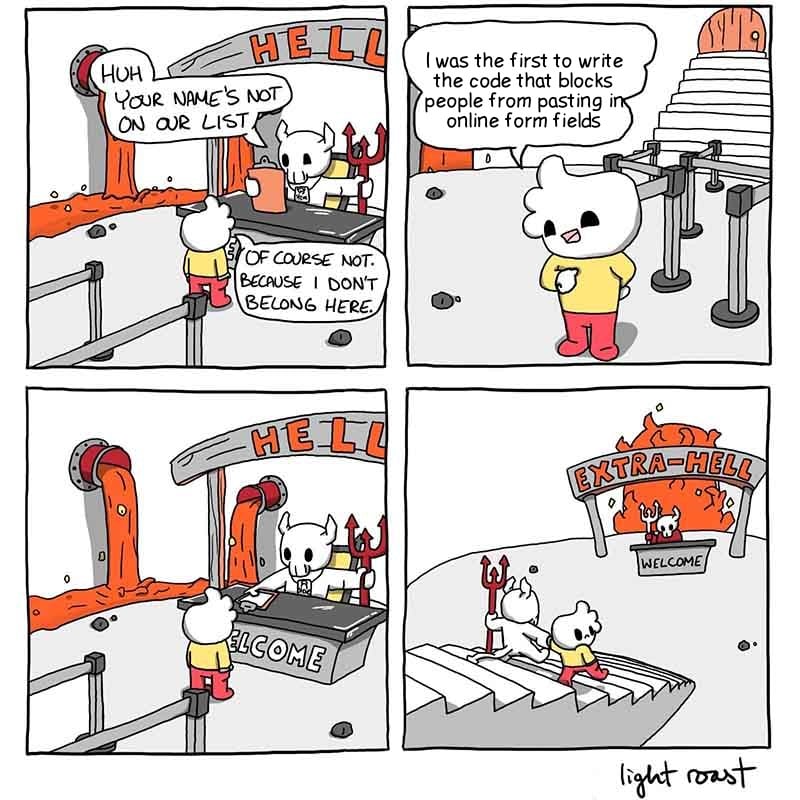this post was submitted on 07 Jan 2025
914 points (99.6% liked)
memes
10837 readers
4257 users here now
Community rules
1. Be civil
No trolling, bigotry or other insulting / annoying behaviour
2. No politics
This is non-politics community. For political memes please go to [email protected]
3. No recent reposts
Check for reposts when posting a meme, you can only repost after 1 month
4. No bots
No bots without the express approval of the mods or the admins
5. No Spam/Ads
No advertisements or spam. This is an instance rule and the only way to live.
Sister communities
- [email protected] : Star Trek memes, chat and shitposts
- [email protected] : Lemmy Shitposts, anything and everything goes.
- [email protected] : Linux themed memes
- [email protected] : for those who love comic stories.
founded 2 years ago
MODERATORS
you are viewing a single comment's thread
view the rest of the comments
view the rest of the comments

That's a security standard preventing keyloggers from guessing your credentials.
FTFY
The TOTP changes every time. For modern totp hashing I'm not sure how many sequential codes a keylogger would need but I'm guessing more than I will ever enter.
Edit, asked ai for an answer to that because I was curious (maybe it's right):
Start AI
That being said, if an attacker were able to collect a large number of TOTP codes, they might be able to launch a brute-force attack to try to guess the private key. However, this would require an enormous amount of computational power and time.
To give you an idea of the scale, let's consider the following:
Using a brute-force attack, the attacker would need to try approximately 2^128 (3.4 x 10^38) possible private keys to guess the correct one. Even with a powerful computer, this would take an enormous amount of time - on the order of billions of years.